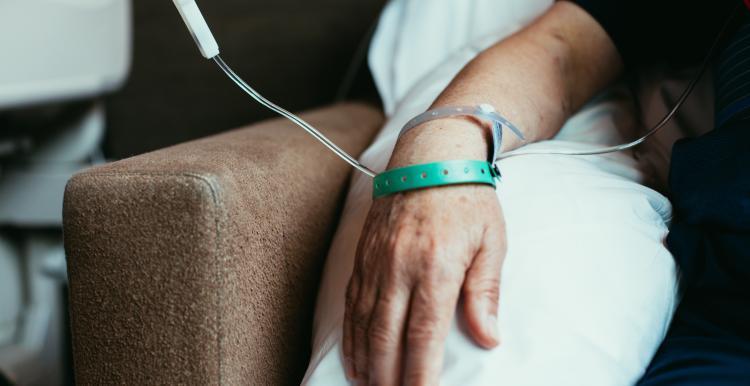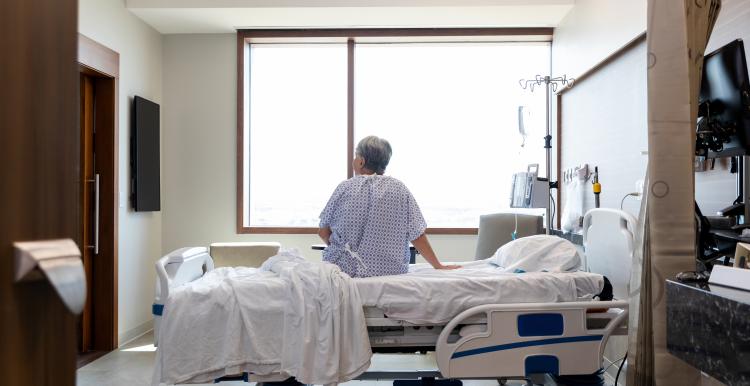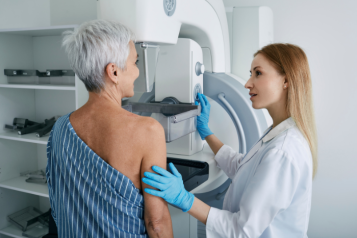Understanding cancer care from the patient’s perspective

Looking ahead, the NHS 10 Year Plan promises more targeted cancer screening, a clinical trial of a cancer vaccine, and reiterates several other government plans to reduce tobacco use and promote healthier lifestyles. A National Cancer Plan is also expected to be published in the autumn.
However, there are some concerns over the starting point for these reforms. The 2024 independent investigation of the NHS by Lord Darzi highlighted that cancer care outcomes in England lag well behind those of other countries, with fewer people taking up cancer screening opportunities and longer waits for cancer care.
You have been telling us your experiences of cancer care. Overall, we heard mixed experiences, with examples of good and bad care.
How quickly should patients be seen?
There are currently three main waiting time standards for cancer care:
- The 28-day Faster Diagnosis Standard, with a target that 75% of patients with suspected cancer should have a diagnosis or cancer ruled out within 28 days of an urgent referral
- The 62-day referral to treatment standard, with a target that 85% of patients receiving a diagnosis should start their first treatment within 62 days of the original referral
- The 31-day decision to treatment standard, with a target that 96% of patients should start their first treatment within 31 days of their cancer diagnosis and treatment plan being agreed
The latest statistics on cancer treatment waiting times show a mixed picture on meeting these standards.
Analysis by Cancer Research UK shows that the target of 75% of people being diagnosed with cancer or who had cancer ruled out within 28 days of an urgent referral was met in June 2025.
Yet only 67.1% of people in England received their diagnosis and started their first treatment within 2 months of an urgent referral in the same period. This is below the target of 85%.
Getting referred to specialist care
A major theme you told us about is the difficulty in getting a timely appointment with your GP. People who are worried that they might have symptoms of cancer need an urgent appointment for a referral. Unfortunately, this didn’t always happen:
“I wanted a GP appointment after finding a lump in my breast. No appointments available until the back end of never, but the receptionist, who I had told what the issue was, said I would have to phone back at 8am to try and get a phone appointment.
“She said she was unable to put me on the list for a call for that day as it was already full. I would have to keep phoning until I got lucky, even though I’d described a potentially life threatening condition to her. It took 3 days to get a call back. It was an aggressive cancer.”
Story shared by Healthwatch Nottingham and Nottinghamshire
People described situations where their GP didn’t listen to their concerns about possible cancer symptoms. They often had to return several times before being referred for treatment. People also told us that they were diagnosed with other conditions before cancer was spotted:
“The GP missed my bladder cancer diagnosis. Diagnosed a urinary tract infection (UTI). I had to keep going back 3 times and pushing them before they'd take me seriously. My cancer would have been less advanced if they'd picked it up earlier when I first went to them with symptoms...really poor.”
Story shared with Healthwatch England
In other stories, people’s cancer diagnoses were delayed due to problems at the hospital end accepting GP referrals. Referrals were sent from department to department, or rejected, delaying diagnosis and treatment.

Long waits for diagnostic test and scan results
People with suspected cancer need to undergo diagnostic tests and scans to confirm a diagnosis. We heard about people who had to wait for scans and tests and then experienced a further wait to get the results. This is an issue that we heard about during the COVID-19 pandemic.
People described feeling anxious during the wait or they assumed the long wait meant there was nothing wrong:
“Referral from GP to bloods and hospital went well but it took 5 weeks from biopsy to results. This had put me in a false sense of security thinking they would tell me if it was bad! However I was then told I had invasive lobular breast cancer and needed surgery etc. That should NOT happen plus you think how it has grown in those 5 weeks!”
Story shared with Healthwatch England
Long waits for results mean that cancers could get worse during the waiting time. One study estimates that a four week delay to cancer surgery led to a 6 – 8% increased risk of dying.
What needs to change?
Accelerate the reintroduction of more ambitious cancer waiting time targets.
Currently, NHS teams have to follow the Faster Diagnosis Standard (FDS), which aims for 75% of people referred for suspected cancer to have cancer ruled out or receive a diagnosis within 28 days. This target will increase to 80% in 2026, however that would still leave 1 in 5 waiting longer that four weeks to find out whether they have cancer. The FDS must be more ambitious and set to a higher target of 95%, with NHS teams given the funding and other resources to deliver this.
Invest in admin in the upcoming 10 Year Workforce Plan.
The current NHS Long Term Workforce Plan overlooks the importance admin staff in ensuring people understand their rights and can access the care they need. Most references to admin improvements were linked to technological advancements, rather than helping people navigate the NHS. The upcoming plan must include measurable targets for recruitment and deployment in any modelling outputs. This includes for roles like care navigators and cancer coordinators.
Implement Jess’s Rule.
Jess’s Rule has been campaigned for by the Jessica Brady Cedar Trust and will mean that after three GP appointments for the same unresolved issue, a patient will be able to access a second opinion and referral to secondary care where appropriate. The Rule has been due to be implemented following work from DHSC, NHS England, and the RCGP and though some training is available for GPs, it has not been formally implemented yet.
Fund voluntary organisations providing support for cancer patients.
Some voluntary, community, social enterprise (VCSE) organisations provide cancer support services, including mental health and peer support programmes which NHS teams refer or signpost patients to. As part of the VCSE role in neighbourhood care teams, these activities must be funded, and VCSE organisations must be involved in planning decisions around the provision of care.


